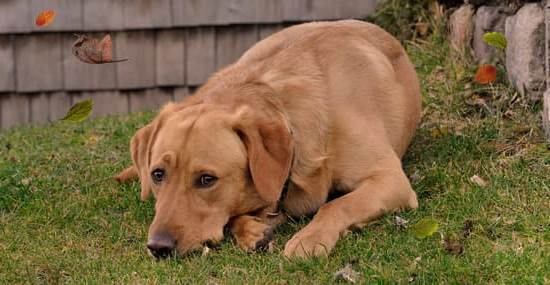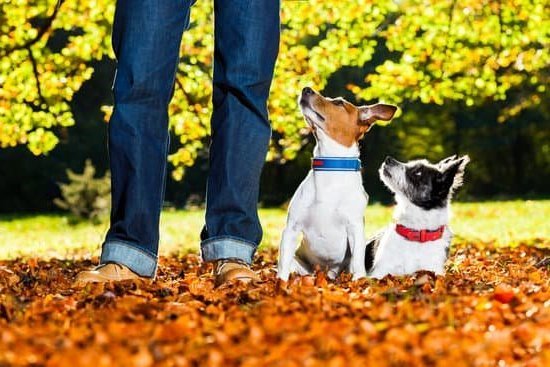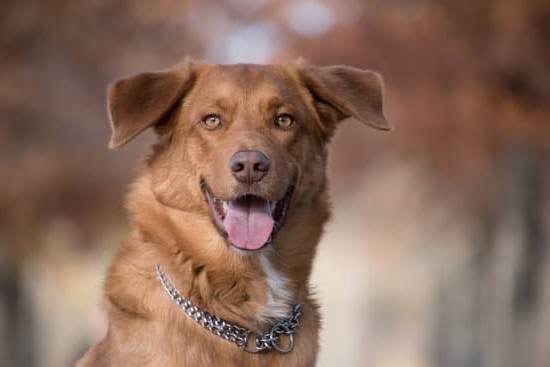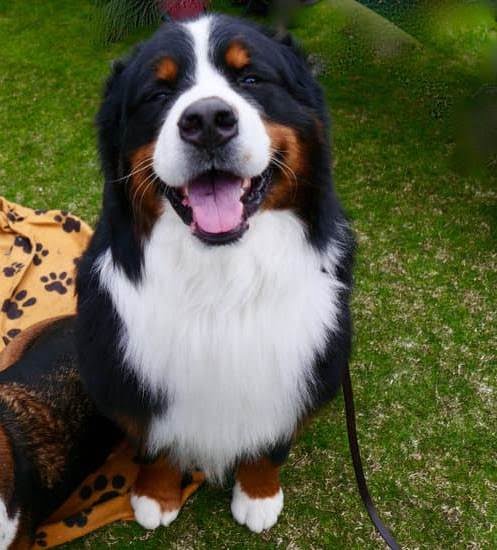Why would a potty trained dog pee in the house? While it may be frustrating for pet owners, there are various reasons why even a well-trained canine companion may have accidents indoors. Understanding this behavior is crucial to addressing the underlying causes and finding effective solutions. In this article, we will explore the concept of potty training in dogs and delve into common explanations for why potty trained dogs may engage in inappropriate urination within the home.
Potty training is a fundamental aspect of owning a dog, as it establishes boundaries for where they should relieve themselves. However, despite diligent training efforts, some dogs may still have accidents inside the house. This could be due to medical issues such as infections or urinary tract problems that cause them discomfort or urge to urinate frequently. Additionally, behavioral issues or stress factors can also contribute to these incidents, leading to confusion and frustration for both pets and their owners.
By identifying the root causes behind why a potty trained dog may pee in the house, pet owners can take proactive steps to address the issue effectively. Whether it’s implementing a consistent routine, providing ample opportunities for outdoor bathroom breaks, or seeking veterinary advice to rule out any underlying health concerns – understanding these potential factors is essential in maintaining a harmonious relationship with our beloved furry friends.
Let’s explore further into this topic to help you navigate through this common yet challenging situation with your canine companion.
Understanding the Concept of Potty Training in Dogs
Potty training a dog is an essential part of ensuring a harmonious relationship between pet parents and their furry companions. It involves teaching dogs where it is appropriate to relieve themselves, usually outdoors. This training process requires consistency, positive reinforcement, and patience. Dogs are intelligent animals who can learn to associate certain cues or locations with bathroom breaks.
Importance of Consistency and Positive Reinforcement
Consistency is key when it comes to potty training dogs. Establishing a routine for bathroom breaks, feeding times, and playtime can help reinforce the desired behavior. Positive reinforcement, such as rewarding your dog with treats or praise when they eliminate in the correct spot, can also be highly effective in training them where to go.
Understanding Canine Communication
Dogs communicate in various ways, including body language and vocalizations. Understanding your dog’s signals can be crucial in successful potty training. Some signs that indicate a dog may need to relieve themselves include sniffing around, circling a particular area, whining or barking at the door, or suddenly becoming restless. By paying attention to these cues, pet parents can better anticipate their dog’s needs and prevent accidents indoors.
Overall, potty training is an essential aspect of responsible pet ownership. Dogs may occasionally have accidents even after being potty trained due to various reasons. Understanding the principles of potty training and being attentive to potential factors influencing a dog’s bathroom habits can help pet parents address any issues effectively. Remember that patience, positive reinforcement, and understanding are key components of successful potty training in dogs.
Common Reasons Why Potty Trained Dogs May Pee in the House
Potty training a dog can be a challenging but rewarding process. However, even after successfully potty training your furry friend, there may be instances where they have accidents indoors. So, why would a potty trained dog pee in the house? One common reason is marking behavior. Dogs, especially unneutered males, may urinate inside to mark their territory. This behavior can be triggered by changes in their environment or the presence of other animals.
Another reason for potty trained dogs to have accidents indoors could be due to medical issues. Urinary tract infections, bladder stones, and other health problems can cause a dog to urinate more frequently or have difficulty controlling their bladder. In such cases, it is important to consult with a veterinarian to rule out any underlying medical conditions that may be contributing to the inappropriate urination.
Additionally, stress and anxiety can play a role in causing a potty trained dog to pee in the house. Events such as moving to a new home, changes in routine, loud noises, or separation anxiety can lead to increased stress levels in dogs which may manifest through inappropriate elimination. It is essential to address any sources of stress and provide proper training and support to help your dog feel more secure in their environment.
| Reasons | Description |
|---|---|
| Marking Behavior | Dogs may urinate inside to mark their territory. |
| Medical Issues | Urinary tract infections or other health problems can cause uncontrollable urination patterns. |
| Stress and Anxiety | Changes in routine or stressful events can lead to heightened anxiety and house soiling. |
Medical Issues That Could Cause a Potty Trained Dog to Have Accidents
Potty training your dog is a significant milestone in pet ownership, but what happens when a potty trained dog suddenly starts having accidents in the house? While it can be frustrating and confusing, there are several reasons why this may occur. One important factor to consider is potential medical issues that could lead to inappropriate urination in dogs. Understanding these underlying health concerns is crucial in addressing the problem effectively.
Urinary Tract Infections (UTIs)
One common medical issue that could cause a potty trained dog to have accidents indoors is a urinary tract infection (UTI). UTIs can be painful for dogs and may lead to frequent urination, urgency to go, and accidents in the house.
If your potty trained dog suddenly starts having accidents without any apparent reason, it is essential to rule out a UTI by consulting with your veterinarian. A simple urine test can help diagnose this infection, and appropriate treatment can resolve the issue.
Bladder Stones or Crystals
Bladder stones or crystals can also contribute to inappropriate urination in dogs. These mineral accumulations can irritate the bladder lining, causing discomfort and an increased urge to urinate frequently. In some cases, these stones may obstruct the urinary tract, leading to accidents indoors.
To determine if bladder stones are the culprit behind your potty trained dog’s accidents, your veterinarian may recommend imaging tests like x-rays or ultrasound scans. Treatment options range from dietary changes to surgical removal depending on the severity of the condition.
Hormonal Imbalances
Hormonal imbalances, such as diabetes or Cushing’s disease, can also result in increased thirst and excessive urination in dogs. If your potty trained dog is experiencing unexplained accidents along with other symptoms like weight changes, increased appetite, or lethargy, hormonal imbalances could be the reason behind their behavior. Proper diagnosis through blood tests and hormone level evaluations by a vet is crucial for managing these conditions effectively and restoring your dog’s potty training habits.
Behavioral Problems That May Lead to Inappropriate Urination
One of the reasons why a potty trained dog may pee in the house could be due to behavioral problems. Dogs, like humans, can experience stress, anxiety, or even territorial issues that may lead to inappropriate urination. It is essential for pet owners to observe their dog’s behavior and environment to determine if any underlying issues are causing the accidents.
To address behavioral problems that may result in house soiling, pet owners can consider implementing training techniques such as positive reinforcement, consistency in schedule and routine, and providing mental and physical stimulation for their furry companions. Additionally, creating a safe space for the dog where they feel secure and comfortable can help alleviate anxiety-related bathroom accidents.
Furthermore, some dogs may exhibit marking behavior indoors as a way to establish territory or communicate with other animals. This behavior is more common in unneutered male dogs but can also occur in neutered males and females. Addressing marking behavior may require training sessions, using deterrents such as pheromone sprays, and ensuring that the dog’s living environment is clean and free of any previous urine scents that could trigger marking instincts.
- Tips for addressing behavioral reasons behind inappropriate urination:
- Implement positive reinforcement training techniques
- Maintain consistency in schedule and routine
- Provide mental and physical stimulation for the dog
- Create a safe space for the dog to reduce anxiety
- Address marking behavior by cleaning areas thoroughly and using deterrents
Stress and Anxiety as Potential Factors in House Soiling
Stress and anxiety can significantly impact a dog’s behavior, including their bathroom habits. While most potty trained dogs understand where they should go to relieve themselves, stressors in their environment or routine changes can lead to accidents in the house. Understanding how stress and anxiety can affect a dog’s bladder control is crucial in addressing this issue.
There are several reasons why stress or anxiety may cause a potty trained dog to pee in the house. Here are some common factors to consider:
- Separation anxiety: Dogs with separation anxiety may exhibit destructive behaviors, including urinating indoors, when left alone for extended periods.
- New additions to the household: The introduction of a new pet, family member, or even rearranging furniture can cause stress for some dogs, leading to accidents in the home.
- Loud noises: Thunderstorms, fireworks, or other loud sounds that trigger fear in a dog can result in indoor peeing as a response to their heightened anxiety levels.
To address stress and anxiety-related house soiling in potty trained dogs, it’s essential to create a safe and comfortable environment for your furry friend. Here are some tips to help alleviate stress and prevent accidents:
- Maintain a consistent routine for feeding, exercise, and bathroom breaks.
- Provide ample opportunities for mental stimulation through interactive toys or puzzles.
- Create designated quiet spaces where your dog can retreat when feeling overwhelmed.
- Consider using calming aids like pheromone diffusers or calming supplements recommended by your veterinarian.
By understanding the potential impact of stress and anxiety on your potty trained dog’s behavior, you can take proactive steps to address any underlying issues and create a harmonious living environment for your beloved pet.
How Changes in Routine or Environment Can Impact a Dog’s Bathroom Habits
Changes in routine or environment can have a significant impact on a dog’s bathroom habits, even if they are potty trained. Dogs are creatures of habit and any disruptions to their regular schedule or living space can lead to accidents indoors.
One common reason for this change in behavior is due to stress or anxiety that the dog may be experiencing. Just like humans, dogs can become anxious or stressed when faced with new situations or changes in their environment.
When a dog feels stressed or anxious, it may manifest by having accidents inside the house, even if they have been successfully potty trained before. This could be triggered by various factors such as a new pet in the household, loud noises from construction work nearby, moving to a new home, or even changes in the family dynamic.
It is essential for pet owners to recognize these signs of stress and try to address the underlying issues to help their furry companions feel more at ease.
Another way changes in routine or environment can affect a dog’s bathroom habits is by confusing them about where they should eliminate. For instance, if a dog is used to going outside in the backyard for potty breaks but suddenly there is no access to it due to construction work, they may resort to going indoors as an alternative.
In such cases, it is crucial for pet owners to provide clear guidance and training for their dogs during these transition periods to prevent accidents from happening inside the house.
Tips for Preventing Accidents in Potty Trained Dogs
One of the most frustrating experiences for a dog owner is when a potty trained dog starts peeing in the house. This behavior can be confusing and concerning, especially if your furry friend has been successfully trained to do their business outside. So, why would a potty trained dog pee in the house? There are several factors that may contribute to this unwanted behavior.
First and foremost, it’s essential to rule out any medical issues that could be causing your potty trained dog to have accidents indoors. Urinary tract infections, bladder stones, or other health conditions may lead to increased urgency or frequency in urination, making it difficult for your dog to hold it until they can go outside.
If you notice any changes in your dog’s bathroom habits, such as increased accidents or discomfort while urinating, consult with your veterinarian to address any underlying medical concerns.
In addition to medical problems, behavioral issues can also play a role in why a potty trained dog may start peeing in the house. Dogs are creatures of habit, and sudden changes in routine or environment can cause stress or anxiety, leading to accidents indoors.
It’s crucial to ensure that your dog feels safe and secure in their living space and provide them with plenty of opportunities for exercise, mental stimulation, and positive reinforcement for good behavior. Remember that patience and consistency are key when addressing behavioral issues in dogs.
| Medical Issues | Behavioral Problems |
|---|---|
| Urinary tract infections | Sudden changes in routine |
| Bladder stones | Stress or anxiety |
Conclusion
In conclusion, there are a variety of reasons why a potty trained dog may pee in the house. While some instances may be due to medical issues such as urinary tract infections or diabetes, others could stem from behavioral issues like marking territory or anxiety. It is essential for pet owners to keep a close eye on their dogs’ bathroom habits and seek veterinary advice if accidents continue to occur despite proper training.
Moreover, changes in routine or environment can also impact a dog’s bathroom habits, leading to accidents even in well-trained dogs. Dogs are creatures of habit, so alterations in their daily schedule or living situation can cause stress and confusion, resulting in inappropriate urination. Being mindful of these factors and providing a stable and comfortable environment can help reduce the likelihood of accidents happening.
Overall, preventing accidents in potty trained dogs requires patience, consistency, and understanding. By addressing any underlying medical issues promptly, reinforcing training techniques, and keeping a watchful eye on behavioral cues, pet owners can help their furry friends maintain proper bathroom etiquette. Remember that every dog is different, so it’s important to find the root cause of the issue before implementing solutions to prevent further accidents.
Frequently Asked Questions
Why Is My Dog Peeing Inside After Being Potty Trained?
Dogs may start peeing inside the house after being potty trained due to various reasons, such as medical issues like urinary tract infections or behavioral problems like anxiety or stress. It’s important to rule out any underlying health issues first.
Why Is My Housebroken Dog Suddenly Peeing in the House?
A housebroken dog suddenly peeing inside the house could be a sign of a medical problem, such as bladder infections or diabetes. However, it can also be caused by changes in routine, stress, anxiety, or even old age affecting bladder control. Consulting with a veterinarian is essential to determine the exact cause.
Is My Dog Peeing in the House for Attention?
While some dogs may pee in the house for attention-seeking behavior, it’s not always the case. Dogs have a limited way of communicating their needs and could be trying to indicate an issue like a health problem, anxiety, fear, or even lack of proper potty training reinforcement.
Understanding your dog’s behavior and addressing any underlying problems is crucial in resolving this issue.

Welcome to the blog! I am a professional dog trainer and have been working with dogs for many years. In this blog, I will be discussing various topics related to dog training, including tips, tricks, and advice. I hope you find this information helpful and informative. Thanks for reading!





